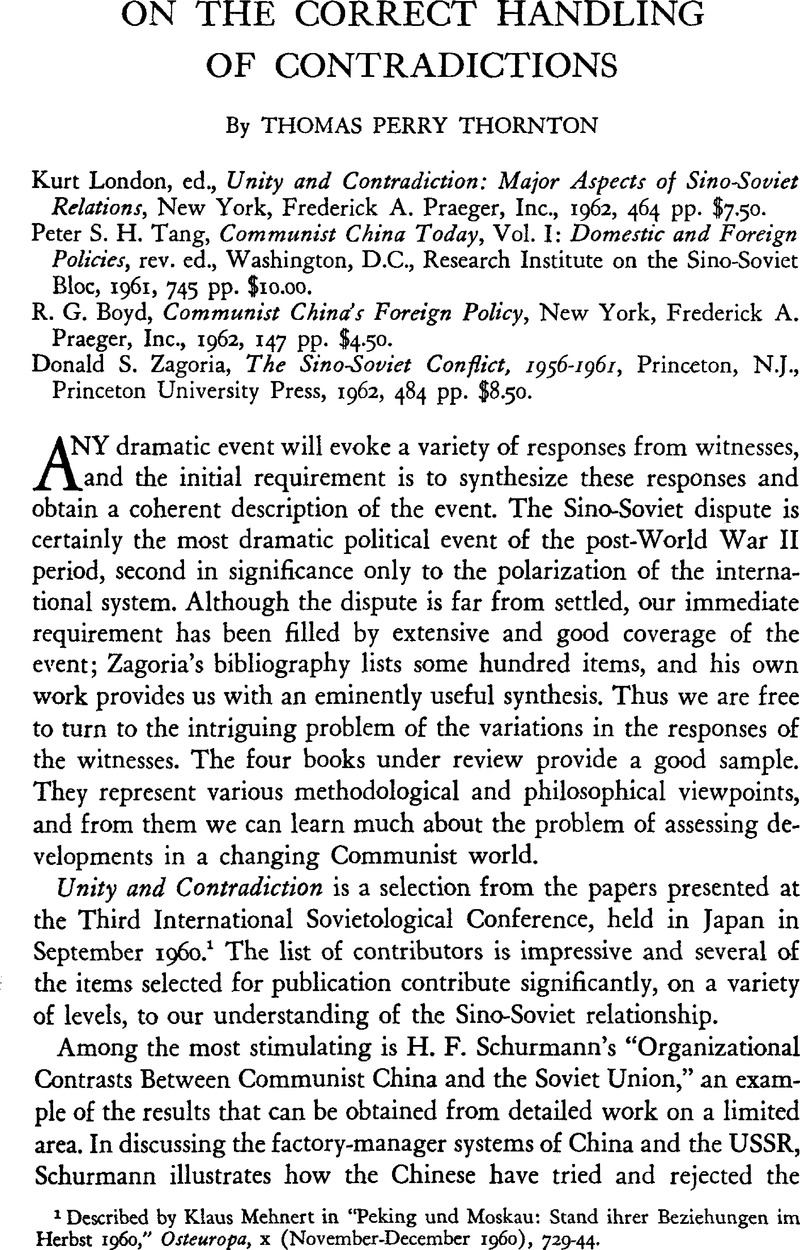No CrossRef data available.
Article contents
On the Correct Handling of Contradictions
Published online by Cambridge University Press: 18 July 2011
Abstract

- Type
- Review Articles
- Information
- Copyright
- Copyright © Trustees of Princeton University 1962
References
1 Described by Mehnert, Klaus in “Peking und Moskau: Stand ihrer Beziehungen im Herbst 1960,” Osteuropa, X (November–December 1960), 729–44.Google Scholar
2 Brzezinski, has expanded upon these ideas in “Deviation Control: A Study in the Dynamics of Doctrinal Conflict,” American Political Science Review, LVI (March 1962), 5–22.CrossRefGoogle Scholar
3 The grain sales are mentioned elsewhere in the text, but why not here?
4 On the matter of footnotes: Tang does in fact give some source references to contemporary Western scholarship in the footnotes—42 instances, to be exact. It is enlightening to note that exactly one-third of the citations are to works by Peter Tang. Of the rest, 13 are to works by persons listed in the back of the book either as staff members or as trustees of the Research Institute on the Sino-Soviet Bloc, which—scarcely coincidentally—bears the onus of publishing this edition. The remaining 15 references are distributed among various other persons writing on China—five of them refer to Karl A. Wittfogel. Most of the persons cited are in fact highly reputable scholars in the field of Chinese studies. Too many other major figures are unrepresented, however, and by devoting two-thirds of the references to works by himself and his immediate colleagues, Tang is at least guilty of a breach of good taste.
5 Only on p. 366 does Tang get around to mentioning their faults.
6 From strophes I and II of “Ein feste Burg” (“A Mighty Fortress”); in the translation of Frederic H. Hedge (1852):
His craft and power are great,
And, armed with cruel hate,
On earth is not his equal.
Did we in our own strength confide,
Our striving would be losing;
Were not the right man on our side,
The man of God's own choosing; …
7 The same problem exists in analysis of Soviet domestic affairs. See Bell, Daniel, “Ten Theories in Search of Reality: The Prediction of Soviet Behavior in the Social Sciences,” World Politics, X (April 1958), 327–65.CrossRefGoogle Scholar




